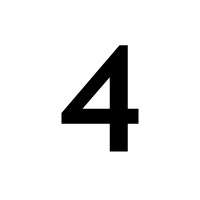- Afghanistan
- Åland Islands
- Albania
- Algeria
- American Samoa
- Andorra
- Angola
- Anguilla
- Antarctica
- Antigua and Barbuda
- Argentina
- Armenia
- Aruba
- Australia
- Austria
- Azerbaijan
- Bahamas
- Bahrain
- Bangladesh
- Barbados
- Belarus
- Belgium
- Belize
- Benin
- Bermuda
- Bhutan
- Bolivia
- Bonaire, Sint Eustatius, and Saba
- Bosnia and Herzegovina
- Botswana
- Bouvet Island
- Brazil
- British Indian Ocean Territory
- British Virgin Islands
- Brunei
- Bulgaria
- Burkina Faso
- Burundi
- Cambodia
- Cameroon
- Canada
- Cape Verde
- Cayman Islands
- Central African Republic
- Chad
- Chile
- China
- Christmas Island
- Cocos [Keeling] Islands
- Colombia
- Comoros
- Cook Islands
- Costa Rica
- Croatia
- Cuba
- Curaçao
- Cyprus
- Czech Republic
- Congo - Kinshasa
- Denmark
- Djibouti
- Dominica
- Dominican Republic
- Timor-Leste
- Ecuador
- Egypt
- El Salvador
- Equatorial Guinea
- Eritrea
- Estonia
- Ethiopia
- Falkland Islands
- Faroe Islands
- Fiji
- Finland
- France
- French Guiana
- French Polynesia
- French Southern Territories
- Gabon
- Gambia
- Georgia
- Germany
- Ghana
- Gibraltar
- Greece
- Greenland
- Grenada
- Guadeloupe
- Guam
- Guatemala
- Guernsey
- Guinea
- Guinea-Bissau
- Guyana
- Haiti
- Heard Island and McDonald Islands
- Honduras
- Hong Kong SAR China
- Hungary
- Iceland
- India
- Indonesia
- Iran
- Iraq
- Ireland
- Isle of Man
- Israel
- Italy
- Côte d’Ivoire
- Jamaica
- Japan
- Jersey
- Jordan
- Kazakhstan
- Kenya
- Kiribati
- Kosovo
- Kuwait
- Kyrgyzstan
- Laos
- Latvia
- Lebanon
- Lesotho
- Liberia
- Libya
- Liechtenstein
- Lithuania
- Luxembourg
- Macau SAR China
- Macedonia
- Madagascar
- Malawi
- Malaysia
- Maldives
- Mali
- Malta
- Marshall Islands
- Martinique
- Mauritania
- Mauritius
- Mayotte
- Mexico
- Micronesia
- Moldova
- Monaco
- Mongolia
- Montenegro
- Montserrat
- Morocco
- Mozambique
- Myanmar [Burma]
- Namibia
- Nauru
- Nepal
- Netherlands
- Netherlands Antilles
- New Caledonia
- New Zealand
- Nicaragua
- Niger
- Nigeria
- Niue
- Norfolk Island
- North Korea
- Northern Mariana Islands
- Norway
- Oman
- Pakistan
- Palau
- Palestinian Territories
- Panama
- Papua New Guinea
- Paraguay
- Peru
- Philippines
- Pitcairn Islands
- Poland
- Portugal
- Puerto Rico
- Qatar
- Congo - Brazzaville
- Réunion
- Romania
- Russia
- Rwanda
- Saint Barthélemy
- Saint Helena
- Saint Kitts and Nevis
- Saint Lucia
- Saint Martin
- Saint Pierre and Miquelon
- Saint Vincent and the Grenadines
- Samoa
- San Marino
- São Tomé and Príncipe
- Saudi Arabia
- Senegal
- Serbia
- Serbia and Montenegro
- Seychelles
- Sierra Leone
- Singapore
- Sint Maarten
- Slovakia
- Slovenia
- Solomon Islands
- Somalia
- South Africa
- South Georgia and the South Sandwich Islands
- South Korea
- South Sudan
- Spain
- Sri Lanka
- Sudan
- Suriname
- Svalbard and Jan Mayen
- Swaziland
- Sweden
- Switzerland
- Syria
- Taiwan
- Tajikistan
- Tanzania
- Thailand
- Togo
- Tokelau
- Tonga
- Trinidad and Tobago
- Tunisia
- Turkey
- Turkmenistan
- Turks and Caicos Islands
- Tuvalu
- U.S. Virgin Islands
- Uganda
- Ukraine
- United Arab Emirates
- United Kingdom
- United States
- U.S. Minor Outlying Islands
- Uruguay
- Uzbekistan
- Vanuatu
- Vatican City
- Venezuela
- Vietnam
- Wallis and Futuna
- Western Sahara
- Yemen
- Zambia
- Zimbabwe
How To Introduce Yourself in an Interview

How To Introduce Yourself in an Interview
When you have an interview at a company, you may need to introduce yourself to numerous persons, including the receptionist, recruiter, and interviewers. The first impression people have of you is influenced by how you show yourself. You want to demonstrate to the interviewers your exceptional communication and social skills, as well as your ability to contribute to the organization's operations. At this post, we will look at the best practises for introducing oneself in an interview, along with examples, in order to make a good first impression.
In an interview, how do you introduce yourself?
When introducing oneself, keep the following guidelines in mind. These techniques provide examples of what to say and how to act in interviews to make a good first impression:
1. Conduct research on the organisation and your interviewers.
You might feel more prepared for your interview if you do some research on the organisation and the interviewers. You may learn about its vision, purpose, and other areas of concentration or activities by visiting its website. If you know who the interviewees will be, discover more about them and their function in the organisation by researching them on networking sites. This information might provide you insights on how to interact with these people throughout your introduction and during the interview.
2. Plan your introduction.
Prepare a brief welcome and introduction to help you feel more confident before your interview. You can prepare a number of introductions for the many persons you may meet throughout the interview. For example, when greeting a receptionist, state your name and the reason for your visit. In the meanwhile, your introduction to the interviewer might demonstrate your passion for the work and potential at the company. For example, you may use information from your study on the interviewer or organisation to assist you create rapport and demonstrate your interest.
The more you practise your welcome and introduction, the more comfortable it will become, which will help calm your anxiety when it comes time to introduce yourself during the interview. You may also practise your introduction with a buddy to gain feedback on how well you come across. Aside from your welcome, they can examine your body language to ensure you appear confident and at ease.
3. Dress for the interview in a professional way.
Professional clothes may help you create a good first impression on potential employers. Organizations have varied dress rules, so do your homework before your interview to ensure you look the part. If at all feasible, contact the recruiter or someone you know within the organisation to learn more about its culture and dress code. If you can't locate this information or are still unsure, dress more formally rather than casually. You may dress professionally for an interview by following these guidelines:
- Be true to yourself. While you may be required to adhere to a dress code, you may still integrate features that reflect your own personality or style. Feeling nice in your clothes may also assist increase your confidence throughout the interviewing process.
- Maintain your emphasis on yourself. Avoid wearing anything that might distract your interviewers, such as flashy jewellery or busy designs. You want to keep their focus on you and your replies so they can decide if you are the right person for the position.
- Prepare your clothing. Begin preparing and organising your attire in the days leading up to your interview. This step ensures that your clothing are clean and fit properly, while also preventing you from hurrying to pick an outfit on the morning of the interview.
4. Exhibit proper politeness
When talking with individuals throughout the interviewing process, always use decent manners. You may be required to report to the receptionist upon arrival. Introduce yourself by stating your name, the title of the position you are interviewing for, and the time of your interview. 'Hello, my name is Peter Smith,' for example. I'm here for a 9am. interview with Harris Jones for the position of systems analyst.' If the interviewer asks for the receptionist's opinion of you, being polite will help you make a good impression.
After checking in at reception, you may have to wait for the recruiter or interviewer to come fetch you. Sit up straight and rest your arms on the armrests or on your lap while you wait. Cross your feet at the ankles or place your feet on the floor. While they arrive, greet them by standing up and saying the following when introducing yourself:
- Use self-assurance in your body language. Look the individual in the eyes and shake their hand firmly.
- Please introduce yourself. When welcoming the individual, use your complete name and show your excitement about the chance.
- Introduce yourself assertively, using your entire name.
- Use etiquette. When the recruiter or interviewer introduces themselves, say, 'It's a pleasure to meet you.' If they are not remaining for the interview, repeat their name loudly to help you remember it, and thank them for guiding you.
5. Be conscious of your body language.
Keep an eye on your body language as you introduce yourself to new individuals. Because nonverbal communication may indicate how you feel, you should make sure it is good. As previously said, maintaining regular eye contact and smiling will help you look attentive when interacting with others. Standing or sitting up straight can also make you appear more confident when speaking, which can aid in building trust with interviewers.
6. Introduce yourself to the interviewer.
If your interviewer walks into the room where you've been waiting, rise to welcome them. Show your self-assurance by smiling, saying your name, and extending your hand to shake theirs. Even if the interviewer is aware of the reason for your meeting, make a quick remark introducing yourself and the position for which you are seeking. Here are some examples of how to make an introduction:
- 'Good morning, everyone. My name is John Chambers. It's a pleasure to meet with you to discuss the research associate position on your consulting team.'
- 'Hello, my name is Jane Smith. I'm delighted to meet you. I'm thrilled to talk with you about the business analyst role on this systems implementation project.'
7. Introduce yourself professionally.
If the interviewer does not have a CV, you can offer them one after meeting them. Before the interview begins, you may exchange a few niceties. Hiring managers' first query is frequently, 'Tell me about yourself,' or something along those lines. Preparing your response ahead of time might assist you in focusing your response on the qualifications that make you the greatest fit for the post. If they do not immediately ask questions, you may utilise the quiet to begin your elevator pitch, summarising your professional experience and interest in the role. Here are two good examples of elevator pitches:
- 'I'm a graphic designer with more than ten years of expertise. I specialise in developing one-of-a-kind, user-friendly website themes. In this work, I'm looking forward to honing my management abilities and developing my own team.'
- 'I have almost six years of bookkeeping experience, particularly with small firms.' If your small business need a dependable bookkeeper, I would be delighted to explore the potential of us collaborating.'
7. Keep an eye on your behaviour throughout the interview.
As you interview for the job, you continue to introduce yourself to possible employers. You want to make a good first impression in order to persuade them that you are an exceptional prospect. Maintain your cool during the interview and let your personality shine through. Interviewers evaluate prospects to see whether they are someone they want to work with and if they would fit in with the culture of their organisation or team. If the interviewer asks you a question that you are unable to answer quickly, it is okay to say, 'Let me take a moment to think about that topic,' before answering.
8. Wrapping off the interview
The conclusion of the interview marks the end of your introduction to the interviewer. Thank them for their time and attention at the end of your interview. You may also express your interest in the employment opportunity once more. As you depart, shake their hand and keep eye contact to demonstrate your professionalism. Here are some sentences to use to conclude the interview on a good note:
- 'It was a joy meeting you.' 'I appreciate the time you gave me today.'
- 'Thank you for a fascinating discussion. 'I wish you a pleasant rest of your day.'
- 'I'd want to learn more about the position.' I'm hoping to hear from you shortly.'
9. Following an interview, send a follow-up email.
After your interview, you may continue to make a good impression on potential employers by sending a follow-up email or handwritten message. Thank the interviewer for taking the time to discuss the employment possibility with you in your message. You may also use your remark to express your enthusiasm for the position and emphasise how your experience and credentials match the needs of the role. Before sending your letter, please reread it to ensure there are no grammatical or punctuation issues.

 by Admin
by Admin


